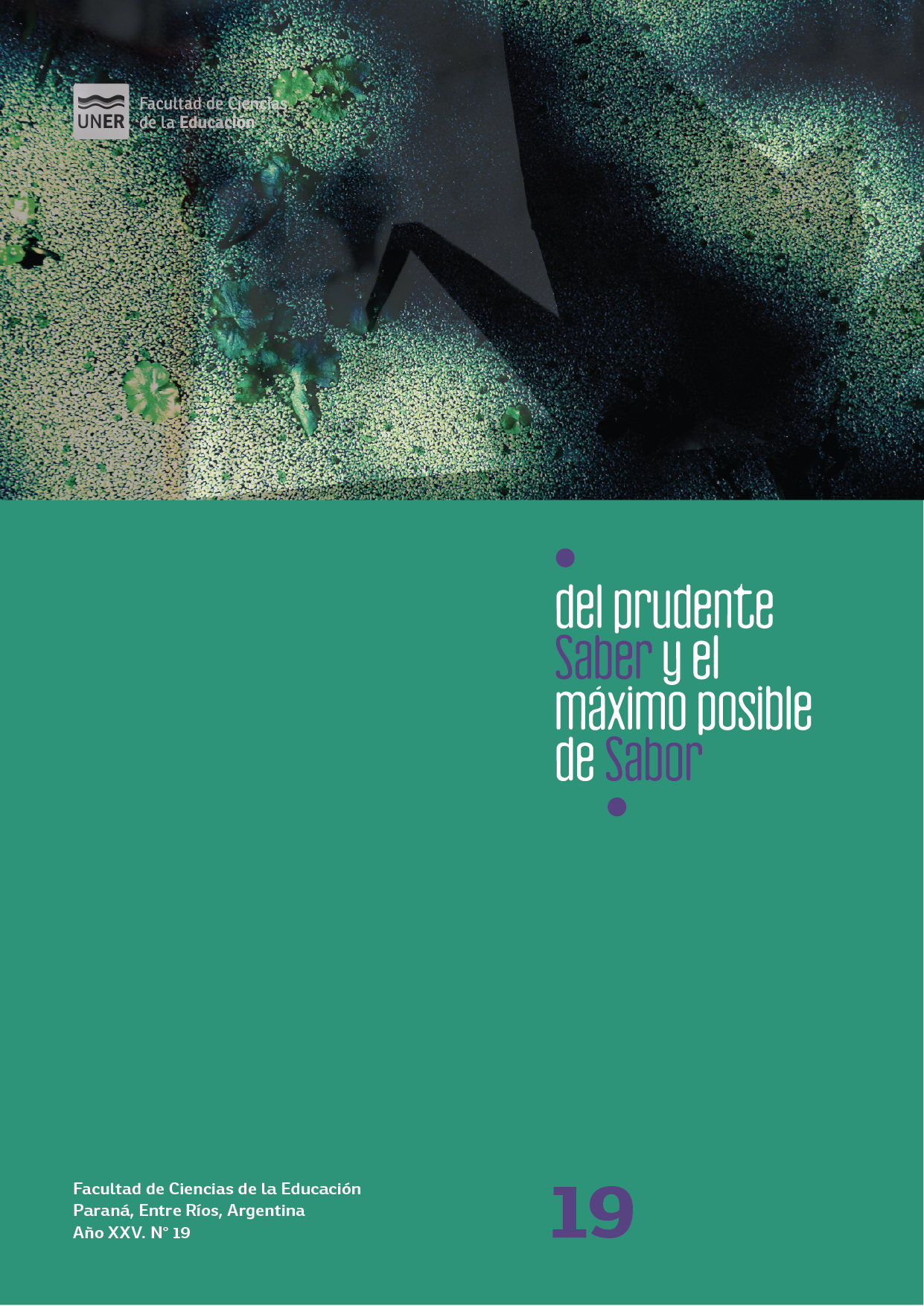A Matter of Scales: Cybernature, Sexuality, and Capitalism in Eduardo Williams' The Human Surge
Main Article Content
Abstract
This article analyzes Eduardo Williams' film "The Human Surge" (2016) as a speculative audiovisual fiction, drawing from concepts that address the crisis of the modern episteme on what's human. Williams' first feature film connects three spaces—Argentina, Mozambique, and the Philippines—through technology and nature. It doesn't have a central storyline or a dramatic conflict; instead, the camera follows the characters as they walk through various locations, almost in a documentary style. Simultaneously, both the spatiality and temporality are disrupted, creating a time-space that is neither dystopian nor utopian, neither technological speculation nor pre-history. Instead, it places itself in the intermediaries, on the margins, finding possibilities for resistance to the constant flows of global capitalism. Therefore, the film can be considered 'weird' in Fisher's (2018) terms, as passageways, corridors, labyrinths, burrows, and holes play a fundamental role in constructing speculative spaces that resemble our present in this developing world more than the mainstream imaginaries of science fiction. In this sense, Williams' feature film envisions, cinematically, a future in which the experience of what's weird is established to break with the centrality of what's human and, consequently, the bourgeois nuclear family and the binary between heterosexuality and homosexuality
Downloads
Article Details

This work is licensed under a Creative Commons Attribution-NonCommercial-ShareAlike 4.0 International License.
Las ediciones no tienen cargos para las y los autores ni para las y los lectores, y se incita a las y los autores a depositar sus contribuciones en otros repositorios institucionales y temáticos, con la certeza de que la cultura y el conocimiento son un bien de todos y para todos. DPS permite la reutilización luego de su edición (Post print) citando la autoría y la fuente original de su publicación. Su uso no puede ser con fines comerciales.
References
Ahmed, S. (2019). La promesa de la felicidad: una crítica cultural al imperativo de la alegría. Caja Negra.
Bielinsky, F. (Director). (2000). Nueve reinas [Película]. Patagonik Film Group.
Danowski, D. y Viveiros de Castro, E. (2019). ¿Hay mundo por venir? Ensayo sobre los miedos y los fines. Caja Negra.
De Luca, T. (2018). Earth networks: The human surge and cognitive mapping. European Journal of Media Studies, 7(2), 121-140. DOI: https://doi.org/10.25969/mediarep/3463
Fisher, M. (2018). Lo raro y lo espeluznante. Alpha Decay.
Freud, S. (1992). Obras completas, Tomo XVIII. Amorrortu.
Ghosh, A. (2016). The Great Derangement. Climate Change and the Unthinkable. University of Chicago Press.
Gibbs, N. (2021). Presente desencantado, futuro especulativo: narrativas latinoamericanas en la era del Antropoceno [Tesis de Licenciatura]. Universidad de San Andrés. https://repositorio.udesa.edu.ar/jspui/
handle/10908/18856
Giorgi, G. (2020). Temblor del tiempo humano: política de la novela en Juan Cárdenas. Cuadernos de Literatura, 24. DOI: https://doi.org/10.11144/Javeriana.cl24.thpn
Guattari, F. (2004), Plan sobre el planeta. Capitalismo mundial integrado y revoluciones moleculares. Traficantes de Sueños.
Guattari, F. y Rolnik, S. (2006). Micropolítica. Cartografías del deseo. Traficantes de Sueños.
Haraway, D. (2019). Seguir con el problema. Generar parentesco en el Chthuluceno. Consonni.
Jackson, R. (1986). Fantasy: literatura y subversión. Catálogos.
Latour, B. (2017). Facing Gaia. Eight Lectures on the New Climatic Regime. Polity Press.
Marks, L. (2000). The Skin of the Film. Intercultural Cinema, Embodiment, and the Senses. Duke University Press.
Preciado, P. (2014). Testo yonqui: sexo, drogas y biopolítica. Paidós.
Ribeiro, L. (2020). Contato fílmico: relações táteis no cinema argentino contemporâneo. Poiésis, 35(21), 325-341. DOI: https://doi.org/10.22409/poiesis.v21i35.38679
Rubin, G. (1986). El tráfico de mujeres: notas sobre la ‘economía política’ del sexo. Nueva Antropología, 8(30), 95-145.
Urrutia Neno, C. e Ide Guzmán, C. (2022). Juventudes urbanas: ciudad, cuerpo, virtualidad en el cine latinoamericano (Chile, Argentina y México). Fotocinema. Revista Científica De Cine Y Fotografía, 24, 85-105.
Williams, E. (Director). (2011). Pude ver un puma [Película]. Alexan Sarikamichian.
Williams, E. (Director). (2016). El auge del humano [Película]. Un Puma; Ruda Cine; RT Features; Bando à parte.
Williams, E. [Clases de guion]. (24 de noviembre de 2021). Charlando con Teddy Williams [Archivo de video]. Youtube. https://youtu.be/VNOxltcellg?si=tmyw5Im2NrwHNbKd
Williams, T. y Batlle, D. (2 de agosto de 2016). Entrevista a Teddy Williams, director de El auge del humano (Competencia Cineasti del Presente). Otros cines. https://www.otroscines.com/nota?idnota=11195
Williams, T. y Batlle, D. (2012). Teddy Williams, del triunfo en el bafici a la Cinéfondation. Otros cines. https://www.otroscines.com/nota?idnota=6408
Wittig, M. (2005). El pensamiento heterosexual. Egales.

